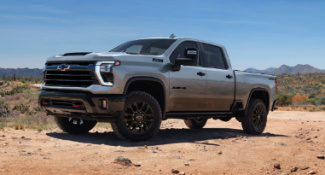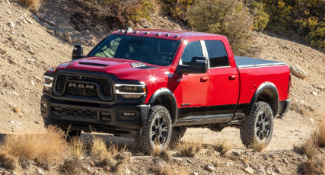Squeaky brakes are a widespread car problem, and it doesn't always mean that your brake pads are on their last legs. If you hear brake noise on your vehicle, don't rush out for a brake job just yet. There are some reasons for brake squeal that aren't serious, including overnight moisture and cold weather.
Let's take a look at the benign and not so benign reasons that your brakes are making a squeaking noise.
What Causes Squeaky Brakes?
In short, the squeaking sound is the result of friction between the metal of your brakes, the brake pads, and possibly some foreign material between them. The type of squeak you hear depends on the condition causing it.
The squeak might be soft, or it might be loud and shrill. It might be one high-pitched note, or it might sound like sheet metal ripping. The latter sound is one you need to immediately pay attention to as it is the most indicative of a severe problem.
What Are Some Common Causes of Squeaky Brakes?
- Dust, sand, and grit getting into your braking system
- Cold weather
- Moisture like snow or heavy rain can result in a thin layer of rust that will disappear after using the brake pedal a few times
- Hauling heavy loads causes the brakes to be under more pressure, which results in heat, swelling parts, and possibly squeal
- Straining during a long downhill drive can cause squealing due to heat
- Hard brake pads often found in newer cars
- Semi-metallic brake pads
- Overnight moisture can get into the brake system and cause squeaking until it wears off
- If your vehicle has been sitting for an extended period
When Squeaking Brakes Are Serious
As previously mentioned, the ripping sheet-metal sound is not a good sound to hear from your brakes. Before you hear that sound, though, you'll likely hear some squealing, which comes from a safety built into many brake pads, it's a bit of spring steel that scrapes the brake disc when the pads begin to reach their limit of wear.
If you ignore this sound and don't get new pads, the steel safety friction material eventually wears down, and braking will result in the ripping sheet metal sound. That's the sound of your brake rotors scraping the metal backing plates, and it will cause serious damage.
Types of Brakes
It's also important to know that there are two types of brakes you might find on vehicles.
Disc brakes are by far the most common in modern cars. They function by having a brake caliper press the brake pad against a disc, also called a rotor, to slow or stop the vehicle. The brake wear indicator squeak only happens on disc brakes. High metal pads and overnight moisture are also problematic for brake parts.
Drum brakes are more likely to be found on older vehicles, but sometimes drum brakes are put on the rear wheels of a car, while the front wheels have disc brakes. Drum brakes work by having a brake shoe pressing against a hollow drum. You might hear a squeaking sound from drum brakes when the contact points between the shoe and the backing require lubrication.
Stopping the Overnight Moisture Squealing Sound
This sound happens when outside moisture collects on the rotor surface. It creates a filmy rust layer, which the pads then scrape against when you first start braking after the car has been sitting. Unfortunately, you can only prevent this type of brake squeak if the vehicle is stored in a dry garage.
Avoiding High-Metal Pads
All brake pads contain some metal, but there are cheap brake pads out there that have much higher amounts of metal. These pads have big metal chunks embedded into the pad material. These heavily metallic pads scrape on your rotor and make squealing sounds. Unfortunately, these pads can last as long as 40,000 miles. If you install these on your car, you'll be hearing that sound for a while. The squealing noise of high-metal brake pads can be helped by adding shims. Shims can be installed on the reverse side of your brake pads, alleviating the squealing noise. Avoid high-metal brake pads altogether by buying quality brake pads with more organic pad material such as resin, rubber, fiber, and the like.
Types of Brake Pads
There are three main types of brake pads: semi-metallic, non-asbestos organic, and ceramic. Each has its pros and cons.
Semi-metallic pads have the most stopping power and can conduct heat away from the rotor. However, they tend to make noise, are susceptible to rust, and can cause too much rotor wear.
Non-asbestos organic pads, sometimes called NAO, are less noisy and cost less than semi-metallic pads. They contain organic fillers that reduce both heat and vibration. The main downside to organic braking pads is that the pads wear down faster.
Ceramic pads are the most expensive type of brake pads, and they come in second in terms of stopping ability. The main benefits of this type of brake pad are that they are quiet and don't rust.
Lubricating Drum Brakes
If your vehicle has drum brakes and you hear a squeal, it's a good warning sign that your brakes need lubrication. Once the contact points no longer have lubrication, the metal starts to rust. That causes the shoes to scrape on the backing plate and thus squeal. Repairing or preventing this noise involves using either an anti-seize compound that can withstand high temperatures or brake greases like Moly Paste 60, lube for the back of the pad or shoe, and contact points.
How to Fix Squeaky Brakes Through Driving
If your noisy brakes are due to the driving conditions mentioned initially, you can mitigate them by changing your driving habits. For example, while going down a steep grade, you can downshift to let engine compression slow you down instead of your brakes. Keeping a safe driving distance between vehicles in stop-and-go traffic will keep you from having to stomp on the brakes suddenly. You can also downshift and roll in this situation. If your brakes squeak when you haul heavy loads, you might consider reducing your load weight to lessen the risk of overheating.
Brake Noise FAQ
Why are my new brakes squeaking? If you just put on new brakes and they're squeaking, it's most likely from lack of lubrication due to mechanic oversight, or it might be due to having brakes with high metal content.
What causes a grinding noise? Depending on the severity, this might be due to worn pads, overnight rust, or rocks getting stuck between the rotor and the backing plate.
How much is a brake job? Depending on what exactly needs to be replaced, a brake service might cost anywhere from $150 to $650 for each axle.
Can brakes squeal when not being pressed? Brakes can squeal without being applied, and this usually happens when the brake pad wear indicator is scraping the rotor.
Do new brake pads need to be broken in? New brake pads do not have a breaking-in period. They should function normally from the very beginning.
How long do a car's brakes last? Depending on how you drive and the conditions, they can last as long as 100,000 miles or as little as 15,000.


